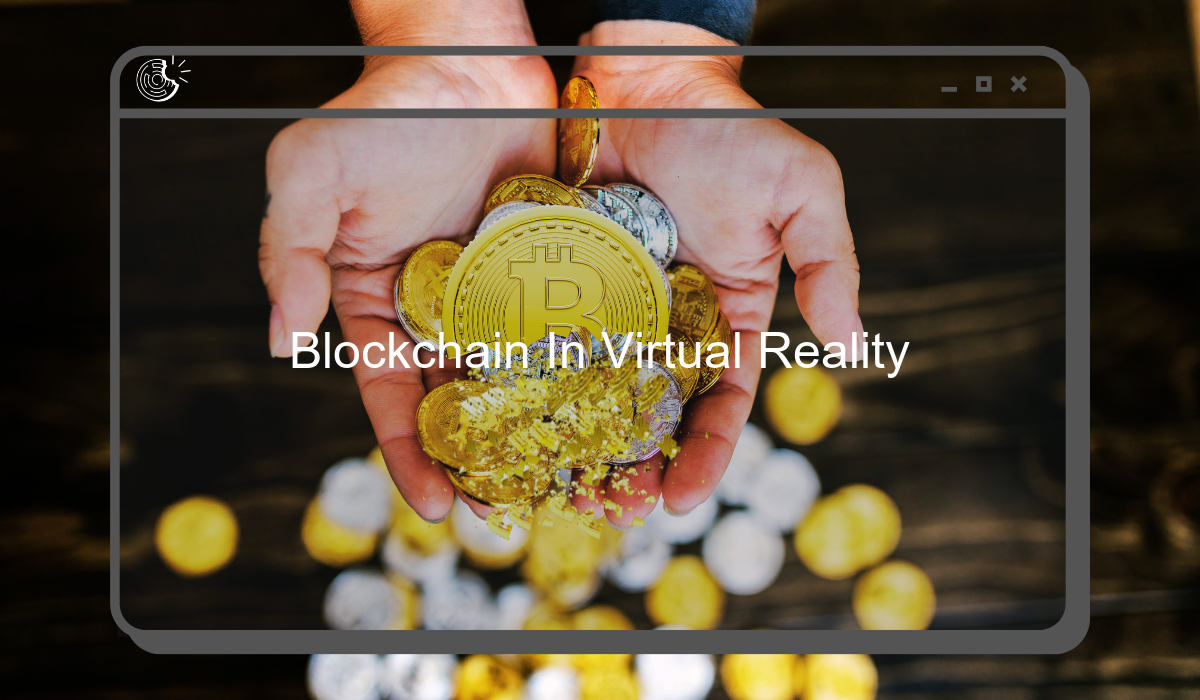Virtual Reality (VR) and the blockchain are two of the most talked about technologies right now.
It’s rare that blockchain in virtual reality spill out on the same breath though.
Expect that to change. These two disruptive technologies are both filled with an enormous potential. Together they promise to make a formidable duo.
And blockchain technology is pegged to propel virtual reality into the mainstream.
In this article we will discuss:
- Blockchain In Virtual Reality
- VR projects that are making an impact
- Data backup
- Copyrighted content
- Immersive Worlds
Blockchain in Virtual Reality
https://youtube.com/watch?v=QsEN10hn3fI%3Ffeature%3Doembed
Programmers have been developing virtual reality since the 1950’s.
To say virtual reality has experienced a slow start is an understatement. The launch of Oculus Rift a few years ago was a major breakthrough for the technology, but in terms of affordability, the virtual world is still out of reach for the majority of people.
Blockchain has the potential to change that.
Arguably one of the most promising technologies of the modern era, blockchain can create decentralised systems and that filter out the middleman.
Subsequently, media that VR is designed for will be much more affordable for everybody.
It is not only the financial aspect that makes the blockchain a potential blockbuster. The technology will help to mature micro-economies, store data, create unique and limited assets, protect intellectual property and verify proof of ownership.
VR Projects That Are Making an Impact
Virtual reality and the blockchain has multiple uses.
On a broadscale, the vision is to use the technology for entertainment in video games and movies.
Who doesn’t want to feel like they are in another world much like our own only better?
This is exactly what Decentraland aims to do.
The only difference between the virtual world of Decentraland and the world we live in is that the players create their own world – and not the environemnt created for us by establishments that want to control what we think, do and feel.
The entertainment industry is not the only beneficiary of virtual reality.
The technology has already been adopted across other industries. The travel industry is using VR to create engaging content and provide holiday seekers with a real-life rendering of what they can experience in a resort or destination.
Businesses in multiple industries have integrated VR technologies into their employee training programs to create real-life experiences in a risk-free environment.
Data Backup
Up to now, VR has been held back because there is no established system that can back up data.
That means every application has to be made from scratch which is time-consuming and expensive.
Now blockchain has entered the fray, VR companies have a digital environment that stores and backups applications that can be repurposed.
Content can be safely stored and copied to DVD’s, Blu-ray and USB all of which is linked to the blockchain so it cannot be pirated.
Copyrighted Content
Protecting intellectual property has been another issue the numerous industries have struggled with since making the switch to digital formats.
Blockchain technology provides a solution for creators – but also (potentially) reduced prices for goods will benefit consumers.
The blockchain allows anybody to create content and load it up to the blockchain network. Once it is in the blockchain, the creator can be identified and anybody that wants to purchase an intellectual property such as a book or video game can only do so through the blockchain.
Whenever there is an exchange of goods and services online, a smart contract is created which contains terms and conditions for both parties.
The agreement will only come to fruition when both parties fulfil their contractual obligations.
For example, if you were to rent a VR movie online, you will be asked to pay a fee. If you agree to the cost of the movie and any term attached to it (e.g. watch one-time-only, watch three times, watch five times) and pay the price in cryptocurrency or by direct debit, the contract is sealed with a digital signature and content creators will be paid directly without the need for third-party intervention or the fees they charge.
Where blockchain really comes to the fore here, however, is if anybody tries to upload a pirated copy or fraudulent ad of a movie that is already on the blockchain, the network will refuse permission.
This means that third parties cannot profit from other people’s work or scam internet users.
Immersive Worlds
While the practical solutions blockchain provides VR manufacturers change public thinking about the copyrighted material, its the potential of the applications that are most exciting.
Take the Virt-U project, for example. Here we have a distributed platform that allows users to buy, sell and create goods.
That may not seem very exciting on the face of it, but when you delve deeper into the potentialities, the butterflies in your stomach flutter with excitement.
Want to fly in space, or be a professional footballer? How about go on a rollercoaster or meet your favourite stars?
In the Virt-U Network, you can be anything you want and do anything your imagination allows.
Immersive worlds are not just games. They are much more.
We are talking about creating a virtual existence that has no boundaries. The real world is boring so live your life in the virtual world and do ordinary things in extraordinary ways.
If you class TV as escapism, you haven’t escaped anything yet.
Whilst virtual world’s in popular computer games such as World of Warcraft, Second Life and The Sims has captured the imagination of millions, Blockchain in Virtual Reality promises to take these limitations to the next level.
And on the next level, the only limitation is the imagination of the user.
Furthermore, because the blockchain is a decentralised system, it is always there and always available.
In the present climate, the virtual worlds belong to a particular company, and if they were to go into liquidation, they would take millions of virtual worlds with them.
Both blockchain technology and VR are disruptive technologies that are creating a buzz in their own right.
As a combination, blockchain in virtual reality will send people into a frenzy of creativity and euphoria.
Read more about how blockchain technology will change the world.





